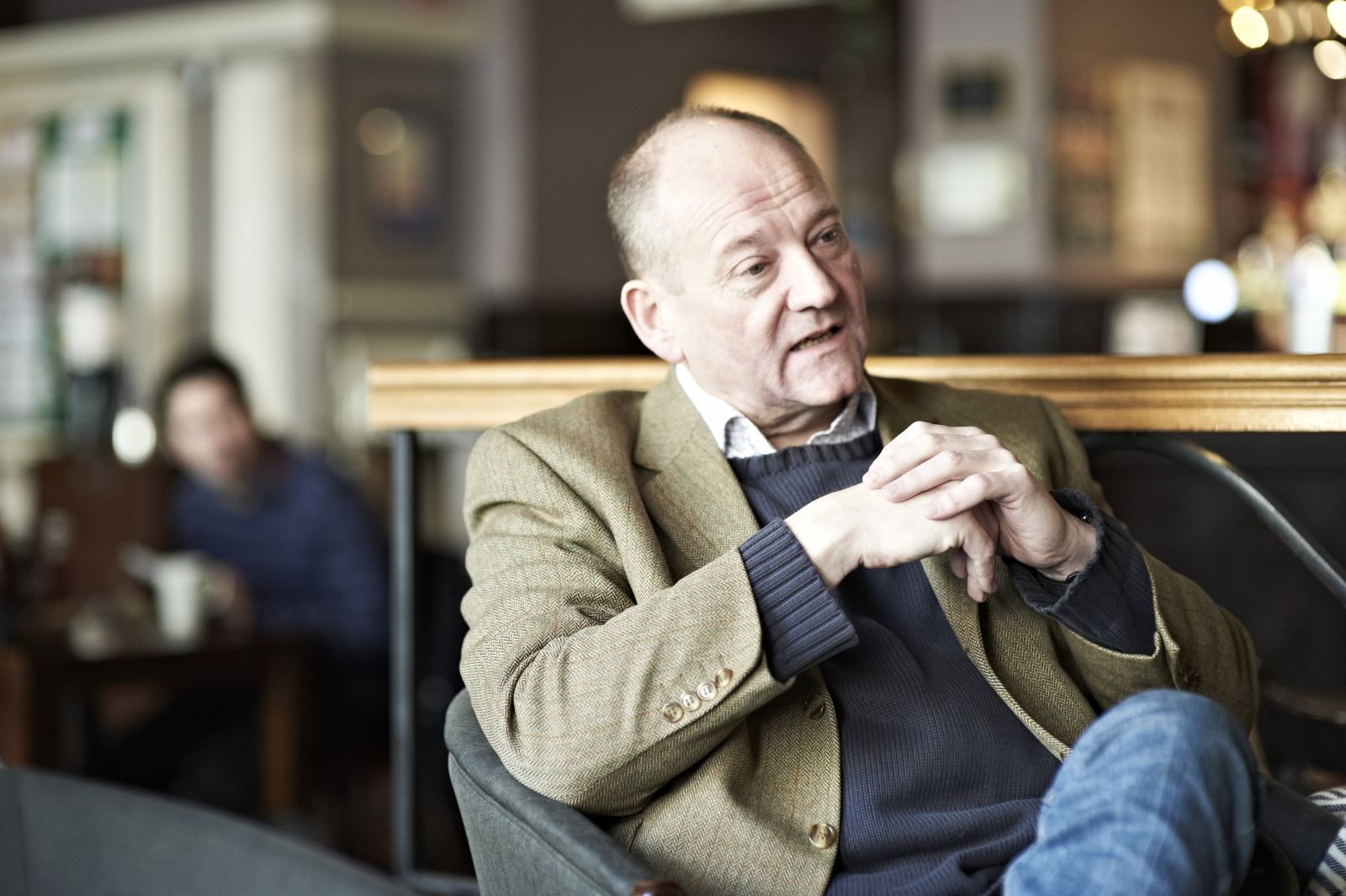
NEWSWALKS
In his Walking Essays of 1912, a brilliant young English writer, AH Sidgwick, proposed that walking "lays a foundation of mutual respect more quickly and more surely" than any other activity. The environment of a walk was exactly right: "Familiar enough to create a sense of ease, and yet strange enough to throw the walkers back on themselves with the instinct of human solidarity."
When Paddy Leigh Fermor and Bruce Chatwin strode, chatting, through the Peloponnesian landscape, they were enacting Diogenes' solvitur ambulando – it is solved by walking.
With this in mind Newsweek has invited some of the world's most interesting thinkers to go on a five-mile walk of their choice, while reflecting on their own lives, inspirations and ambitions.
I used to sleep-walk as a kid," says Russell Foster. He once entered the sitting room of his parents' top-floor flat in Aldershot and looked at his father."Where's Mummy?" His father pointed –"She's there." On another occasion, he turned right at the end of the corridor and peed into his mother's wicker shopping-basket.
It's a bright, cold January day. We're walking – wide awake – through Bristol, home of the Victorian engineer Isambard Kingdom Brunel; but also of the university where Foster studied neuroscience – a journey that led, in 2007, to the discovery of a new class of photoreceptor in the human eye and so, in layman's terms, changed the way we see basically everything. If the body-clock has an engineer like Brunel, it would be Russell Foster CBE.
"Why and how we sleep-walk is something we still don't understand," he says. But the answer is likely to lie with the photosensitive ganglion cells that Foster first discovered in fish in 1998, the exciting implications of which only now are being entertained. During the course of our eight-hour walk – the same unit of time he recommends for a good night's sleep – Foster will teach me many things: how sleep is a measurement of brain health; how the Chernobyl and Challenger disasters were possibly caused by sleep deprivation; how those suffering from bipolar disorder or schizophrenia can have their symptoms halved by regular sleep.
I am not alone in my fascination. Since 2013, nearly five million have tuned into Foster's TED talk on YouTube, in which the 55-year old Oxford professor reminds us that sleep occupies 36% of our lives, so that a person of 90 will have spent 32 years asleep – and in a condition that, far from being a Rumpelstiltskin waste of time, is "the single most important behavioural experience we have".
We begin our walk on Queens Road, outside the Wills Memorial Building, a neo-Gothic pastiche of an Oxbridge college – and opposite a café once called Cardawine, today the Berkeley pub. It was in the basement that the undergraduate Foster, as president of the Zoological Society, used to treat important guest-speakers to prawn cocktails and green mugs of Nescafé "with appalling floating powdered milk". This morning the glossy black door to the basement is locked, and a sign reads: "Jägerbomb – 2 for £5". It will be a trait of our walk, how many names have changed, and tastes.
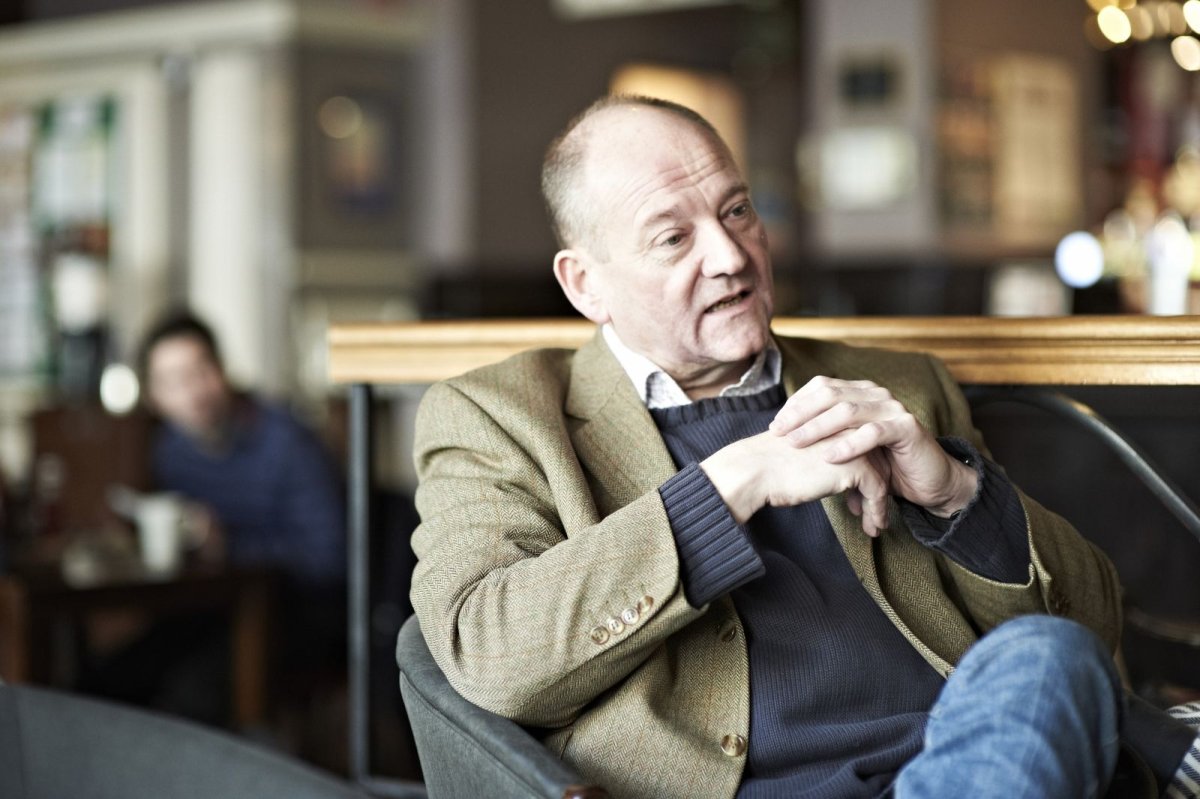
Foster arrived in 1977, one year after the university's centenary. Bristol had accepted him – "God bless them" – less for his unremarkable A-levels than for his enthusiastic interview. "I always thought in a visual way, so I showed them files of my lab work: drawings I'd done of dissected flowers and skulls. I talked for the entire 30 minutes. They didn't get a word in edgeways." Without his "unipolar optimism", as he calls it, he might not have gained a place.
We walk up University Road and enter the courtyard of the Botany and Zoology department, renamed Biological Science, as he did on his first morning. "Look!" Foster bounds up four steps to an entrance with B27 on the frame and rattles the handle. But it's another closed door. Going round to the main entrance, we find this padlocked too: Biological Science has moved to Life Sciences.
Forehead creased, Foster peers through a ground-floor window, into empty, boarded-up rooms. "What do you feel?" I ask.
"It's like one of your favourite relatives dying.
I remember coming here for the first time so vividly, heart pounding, and being overwhelmed by possibility."
Something precious shattered
Foster has the solipsism of an only child, which, in fact, he is. In an early memory, he was chatting with a friend in school when the teacher ordered him to stop or stand in the corner. "Apparently,
I said, 'I was just finishing my conversation and if you make me stand in the corner, I'll put you in the dustbin'."
Another memory has him waiting to cross the road, but with his view obscured by parked cars. "I was very anxious. I couldn't see. I thought,
'I can't have this dithering,' and I just ran across the road, unaware of the consequences." He remembers a car hooting, but that's about all.
Blind to boundaries, he seems not to have been constrained by them. It's partly to do with what he himself recognises as "this deep insensitivity, this blunderingness that sees the goal and does the most logical thing, and has no idea of the pain it causes". Not considered clever, Foster bumped along the bottom of the class and failed his 11-plus.
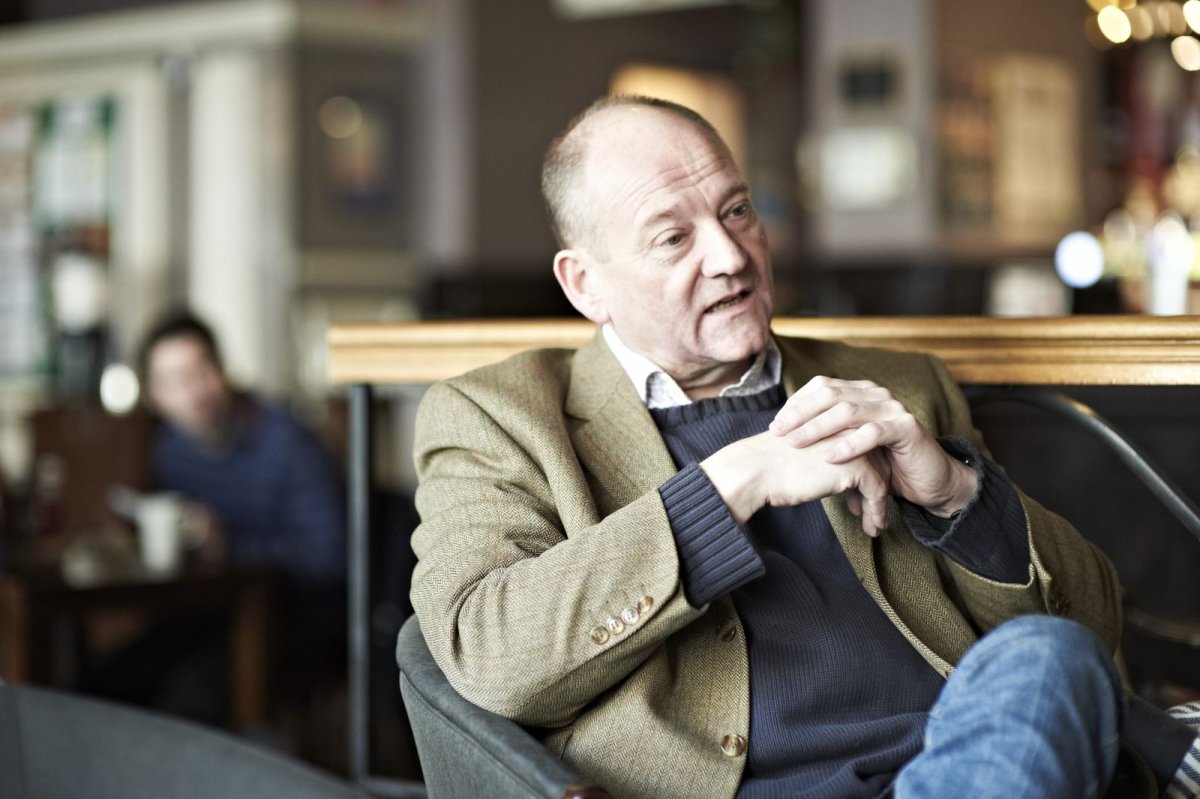
His headmaster told his parents: "You have to appreciate that Russell is entirely a non-academic child." One of the few activities he excelled in was swimming, after his father took Foster to Barbados and introduced him to scuba-diving.
His father was a pathologist for BOAC, dealing with "any weird insects" found on planes; his mother a matron in a home for socially deprived children. The family lived on the top floor of the children's home, a large Victorian building in Aldershot, with tiled entrance, stained-glass windows, cast-iron fireplace and large green-painted bedroom. The same features have served as a template for Foster's homes ever since, as though to replicate something precious that was shattered.
"My father left when I was 11," he says, and I wonder how many times he has used that phrase, like a talisman to ward off going there. "He dropped me off at the school gates in his Triumph Spitfire. I was going on a trip to the Isle of Wight to look at fossils with Colonel Dryland." And he slaps his bald head and chest to mimic a teacher with half-moon glasses who had fought in the North African campaign – "This is the characteristic of mammals. They have hair, they sweat and they feed their young on milk."
For a week, 11-year-old Russell filled his BOAC bag with scallop shells going back 80 million years to the Cretaceous Period. It was, he says, "the most exciting week ever – deeply liberating." But he found it odd that on his return his parents had not come to pick him up; instead, his mother's brother.
"My uncle was in the leather driver's seat, and my grandmother in the back. She said: 'Russell, I've got a bit of bad news for you. Your dad's left your mum.' I looked up and saw tears streaming down my uncle's face."
He found his mother in bed, her stomach pumped out. His father had driven home after dropping Russell off and told her he was leaving. "She had tried to top herself with barbiturates. I was distraught. I wasn't blubbing or anything. But people were saying, 'You're now the man of the household,' and stuff like that."
His father wanted to remain in touch but Russell did not. "Everything was returned, Christmas presents, birthday presents." They spoke once more only, on the telephone. "I said, 'If you come back now, it will be as if it never happened. If you don't, that will be it'."
"And?"
"I never saw him again."
The nicotine-stained microscope
Twelve years later, Russell was doing his PhD in Bristol when he received a message that his father was dying and would love to see him.
"I refused. Nothing had changed."
After his father died, Foster inherited his microscope. His father had been a heavy smoker and there were nicotine stains on the back. Foster put it in the loft. "It's stored with demons, tightly buried, in one of those boxes I keep firmly closed, marked 'Don't go there'." One can't help feeling that the microscope remains an instrument he has still to lower on himself.
Yet his father's desertion had a transformational effect. First, it brought to a head Foster's disbelief in God. Up till then, whenever he heard his parents shouting, he framed an internal vow: "God, unless you make these people stop rowing, I'm not going to believe in you."
The vow now stuck. Walking through Bristol one day, and hearing that a church had closed, Foster punched the air: "Yes, victory!" He says: "Kids protect themselves entirely by black and white. I became detached. For 20 years, I defined the world as black or white, right or wrong, yes or no. Clearly, there's a grey."
Second, his education took off. "Those emotional shocks can ricochet. What happened to me is the reverse of what one might have expected. I went from being not successful to being top of the class. Then I was moved up and became top of that class. On top of that, I'm finding subjects I love."
Single room essential
Foster had come up to Bristol hoping to be a marine biologist "because I could swim". He played underwater hockey with the Octopush team. As well, he attended debates at the student union in the chamber adjacent to the swimming pool. He was too shy ever to speak, although he did join the Federation of Young Conservatives, once blurting to Tory minister Keith Joseph's daughter that he was "a good breast-stroker". He blushed when it dawned on him what he'd said. "People did blush in those days. At least, I did."
Foster has not walked this route since the 1980s. We leave his old campus buildings and head down Woodland Road, between detached grey stone houses, retracing the path he would have taken from his hall of residence. "I was terrified of sharing a room, still am. When I go to conferences, I insist: Single room essential – medical condition."
We pass the local grocery – then Hopton's, now Earthbound – where Foster bought apples, cheese, crusty bread, and on one occasion an orchid ("for a young woman I was taking to a ball"). Past the house where he got drunk for the first time ("on execrable French wine from a box") and vomited into a scatter cushion. Into Chandos Road, where his face brightens at the sign of a bric-a-brac shop. "I once saw a Windsor chair in the window, warm, used, the most beautiful thing I'd seen. It was £50. I couldn't afford it. To this day, I wished I'd bought it."
Inside Rag & Bone, Arthur, the owner, stands scrubbing a table, surrounded by cardboard boxes crammed with vegetably-smelling books.
I pick out a pale blue hardback published in 1933 – The Woman's Book of Health: a complete guide to physical well-being. Arthur says, "Never had much luck with books. Even when rare and valuable, they're hard to sell." His most successful sale was an album of photographs of the Japanese invasion of Shanghai, taken by a photo-journalist. Arthur bought it at a country auction for £30 and sold it in London for £4,700. What sells well is lighting, artwork, furniture.
He doesn't have a Windsor chair, but he has a George III desk, and motions to it. "1780. You can have it for £300." We both notice Foster's involved expression. "I need a desk ..." He has recently bid on a house in Oxford, red-brick with stained glass and cast-iron fireplace. "If the sale goes through ..."
"I can deliver for £30," offers Arthur, and gives Foster his card.
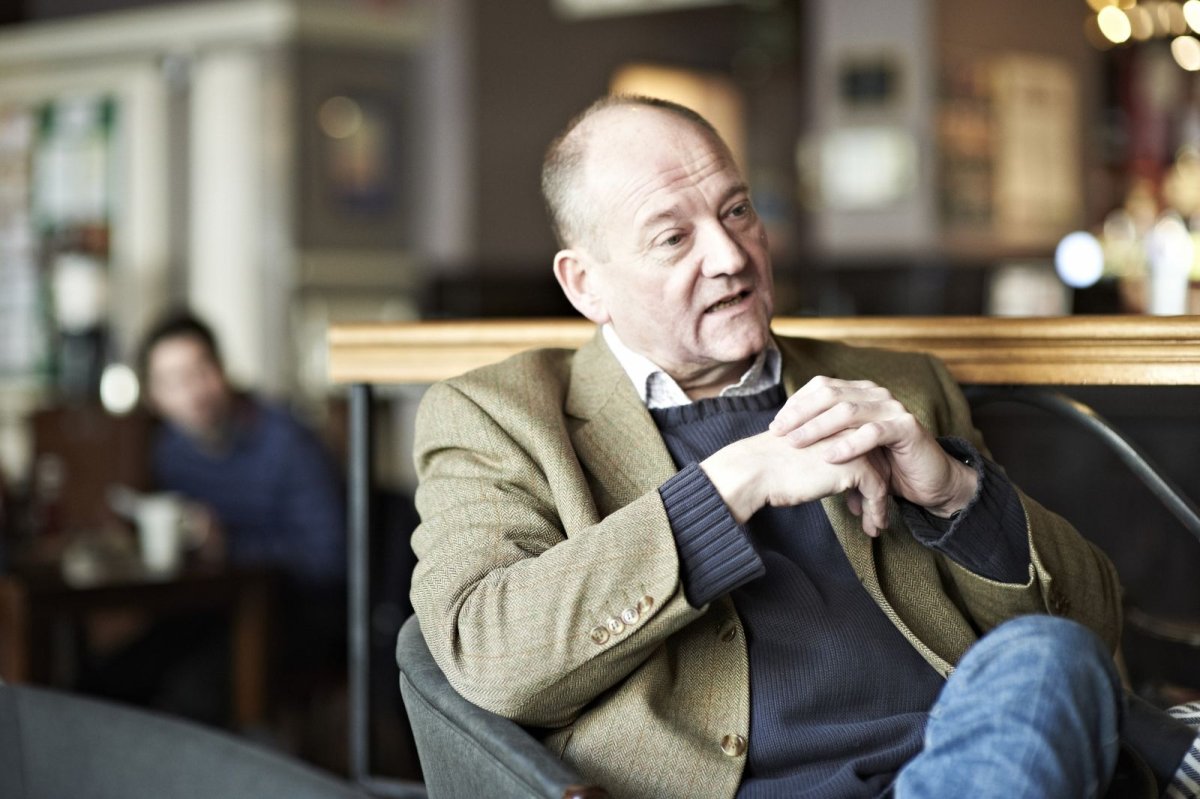
In the eye of a locust
What opened Foster's eyes to light and sleep as his subjects was a first-year experiment on the retina of a live locust. "I shone light into it and saw the incredible change in electrical activity caused by an obscure yet vital light censor. Something fired off. I was excited to find how these censors worked, to deduce what the mechanisms were. I thought: I like swimming, but I don't want to poke around on the seashore. I began to think physiology."
From locusts, he progressed to tadpoles. Move a light over its pineal gland and a tadpole starts to swim. But why? Foster experimented on frogs, birds, salmon, mice, eventually humans. His early research so excited him that he wrapped his lab books in a plastic bag, putting this in the freezer in case his digs burned down. He sketches out those initial discoveries as we walk to 29 Fernbank Road – where he lived for a year with two vets – and up Whiteladies Road to the basement flat he rented while working on his PhD.
"We had studied the eye for 150 years. It was the best-explained part of the central nervous system. The assumption was: the only receptor in the eye were the visual cells, which grab light to make an image of the world and allow us to see. That the eye also gives a sense of time was largely ignored."
To regulate time, there was long suspected to be a photoreceptor in the brain which recorded an overall, unconscious impression of light, deducing whether it was dawn or dusk. "Our alertness goes up in anticipation of day, down in anticipation of sleep. If you don't have a strong setting cue to the master clock, you very rapidly move out of alignment with the external world – you lose your sense of time and space, and plunge into unremitting jetlag. We just didn't know what this regulating mechanism was."
Foster's experiments with blind mice indicated something astonishing: that this other receptor was situated not in the brain, but also in the eye.
"How did colleagues react?" I ask.
"You can't believe the vitriol! 'We've been studying the eye for 150 years – are you seriously telling us we've missed a whole receptor system?'" The Eye Institute in Washington "shredded" his application for a grant, but a supportive professor advised Foster to send it to another study section.
"I changed three words and submitted it to the Institute of Mental Health. Weeks later, they telephoned to say I had come top of the entire study section and they wanted to use my application as an example."
For Foster, who regards Darwin's bulldog Thomas Huxley as his mentor: "It reinforced the sense that you must keep kicking on the bloody door till the buggers let you in."
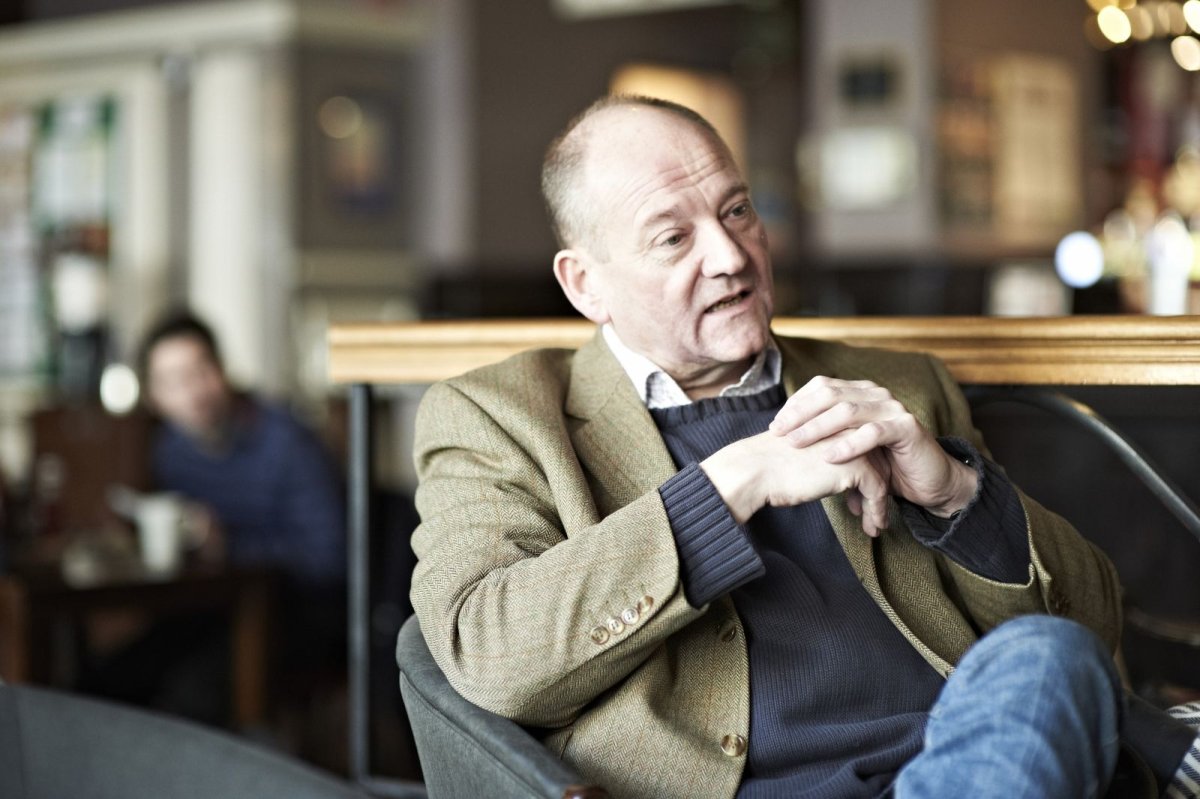
There's a hole in my vision
By then he was married, with children. He calls Lizzie, his wife, "my goddess". He's already pointed out the first-floor room where their romance originated, in the now abandoned former Botany and Zoology Department. The story is a paradigm of Foster's "blunderingness that sees the goal" – in this case, the gal.
As a PhD student, Foster taught biology in that room to those doing a foundation course in medicine. One of his students, Susan, invited him, as part of a group, to a medics' ball. He accepted, then pushed it from his mind.
"Ready for tonight?" she reminded him on the day. But not only had Foster forgotten, he had invited friends to dinner. "She made me feel like shit. 'My sister Lizzie is coming from London, and she won't have anyone to go with'."
Shamed, Foster called up an old girlfriend and begged her to host his dinner party. "I made a large lasagne in advance and left in white tie, and a toast was made 'to absent hosts' by the person who became my best man." The wedding speech would feature an imitation of Foster returning from the ball in the early hours, burbling: "Lizzie's really sweet."
She was training to be a lawyer in London. After dancing together all night, they exchanged books. Six months later, they were engaged; after 12 months, married. "It's the most sensible, wonderful decision of my life. In 30 years, I wouldn't change a thing. Not one dot. Isn't that terrifying?"
"What were the books?"
"I gave her Biology Made Simple. She gave me Nabokov's Pnin. It was the first novel I'd read. And then I realised what novels are about." Foster now advises his PhD students: "Read novels if you want to learn about communicating ideas and emotion."
We stop at 28 Upper Belgrave Road and knock on a red door, but Miss Pugsley his old landlady doesn't come to open it. "This is where life changed completely and it was magical," he sighs. He married Lizzie in 1984. They bought their first flat on Royal York Crescent in Clifton. By then, his grandparents had relocated to Bristol, followed by his mother, who is still there.
It's a short stroll alongside the Downs, where Foster used to jog, into Clifton – "one of the most beautiful places to live in the country.
Bath is for aristos. This is for merchants who'd made it and wanted to make a statement, and I think that's great."
There's no more dramatic statement of Bristol's place in the world than Brunel's suspension bridge – "my first child, my darling," the engineer called it. Foster stands on the lip of the deep gorge and gazes in undisguised admiration at the massive iron span: "This is 19th-century man overcoming nature. It's part of our imposition, like invading darkness with Edison."
Not that we've mastered the darkness, quite. In exam time, Foster says, they put an extra guard on the bridge to stop people jumping. "The interesting thing about suicide: you'd say it would peak in winter, actually it's late spring, early summer. One argument is that when you're depressed, you've no energy, so you're incapacitated. Light increases energy levels, but it has a slower effect on depression, so you're energised but still depressed – and you have the energy to do something."
"Do you get depressed?"
"I got desperately low three months ago.
I'd never been so low, the first time my 'unipolar optimism' failed me. Only for a few days, for God's sake."
On 3 September 2014, Foster suffered an ocular stroke that killed his ganglion cells and left him with 30% vision in his right eye. "As I move my hand across my line of vision, I can't see my hand on the right hand side." He holds out his arm to demonstrate, and it's as though he is rubbing away a mist: "There's a hole in my vision which the brain fills with grey."
"Then you no longer see only in black and white?" He smiles. "I've become completely wishy-washy about decisions."
Even so, our walk results in Russell Foster reaching one decision. Two days later, he emails to say that he has bought the Georgian desk. "So a missed opportunity to buy a Windsor chair in 1982 sublimated into a desk 33 years later! I was determined not to make the same mistake twice."
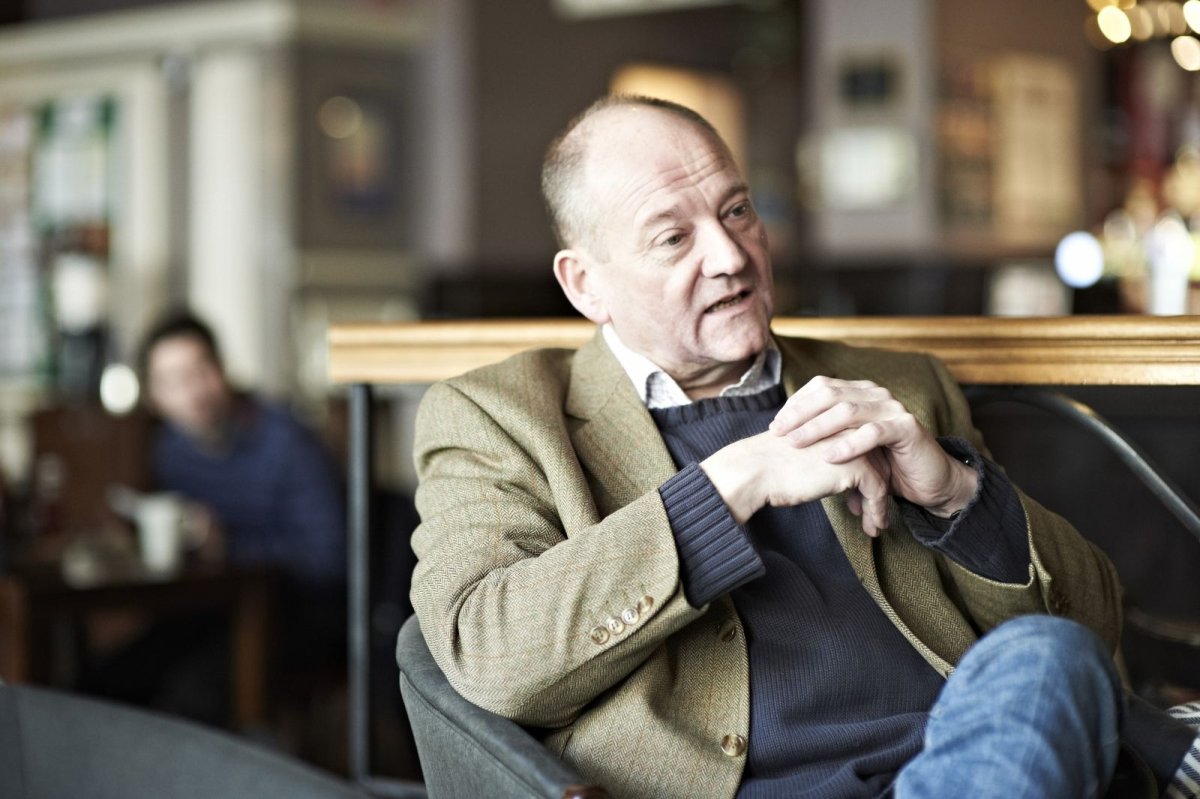
Uncommon Knowledge
Newsweek is committed to challenging conventional wisdom and finding connections in the search for common ground.
Newsweek is committed to challenging conventional wisdom and finding connections in the search for common ground.
About the writer
To read how Newsweek uses AI as a newsroom tool, Click here.








